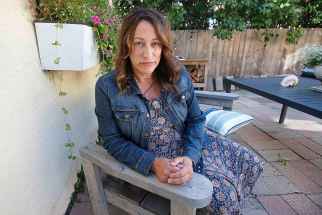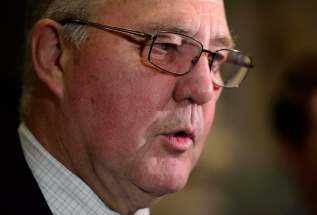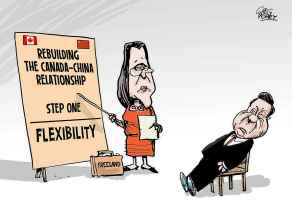Former manager rejects Folk Fest’s settlement offer Fest denies violating cancer survivor's rights by not allowing her back to work
Read this article for free:
or
Already have an account? Log in here »
To continue reading, please subscribe:
Monthly Digital Subscription
$0 for the first 4 weeks*
- Enjoy unlimited reading on winnipegfreepress.com
- Read the E-Edition, our digital replica newspaper
- Access News Break, our award-winning app
- Play interactive puzzles
*No charge for 4 weeks then price increases to the regular rate of $19.00 plus GST every four weeks. Offer available to new and qualified returning subscribers only. Cancel any time.
Monthly Digital Subscription
$4.75/week*
- Enjoy unlimited reading on winnipegfreepress.com
- Read the E-Edition, our digital replica newspaper
- Access News Break, our award-winning app
- Play interactive puzzles
*Billed as $19 plus GST every four weeks. Cancel any time.
To continue reading, please subscribe:
Add Free Press access to your Brandon Sun subscription for only an additional
$1 for the first 4 weeks*
*Your next subscription payment will increase by $1.00 and you will be charged $16.99 plus GST for four weeks. After four weeks, your payment will increase to $23.99 plus GST every four weeks.
Read unlimited articles for free today:
or
Already have an account? Log in here »
Hey there, time traveller!
This article was published 13/08/2019 (2314 days ago), so information in it may no longer be current.
A breast cancer survivor has rejected a financial settlement by the Winnipeg Folk Festival after filing a human rights complaint arguing the organization discriminated against her for not bringing her back to work following her health battle.
Margaret Koshinsky, the festival’s former marketing and communications manager, was set to have her complaint — that she was discriminated against based on disability — heard by a Human Rights Adjudication panel this week. But the hearing was cancelled last week when the Folk Festival asked the Manitoba Human Rights Commission to appoint a new adjudicator to review a settlement offer made by the charitable, nonprofit arts organization.
The hearing has been adjoured to Nov. 28.

Koshinsky said she won’t say how much money she was offered, but she has rejected it. Koshinsky said a financial settlement was never the issue — she wanted the public to know through a public hearing what happened to her and how others fighting cancer are dealt with in the workplace.
“Not all discrimination is overt,” she said on Tuesday.
“Cancer discrimination is very subtle, and that is the case here. It is important the public hear this story if we want to change the perceptions of cancer survivors in the workplace.
“They didn’t even give me a chance — or even try — to do my job again.”
The Winnipeg Folk Festival said in a statement it “specifically denies” it violated the The Human Rights Code or engaged in any other wrongdoing.
“Cancer discrimination is very subtle, and that is the case here. It is important the public hear this story if we want to change the perceptions of cancer survivors in the workplace.”
– Margaret Koshinsky
Meanwhile, Koshinsky said her case is not isolated. A study in 2018 by the Canadian Breast Cancer Network found 16 per cent of Canadian women diagnosed with breast cancer end up losing their jobs while 65 per cent of Canadians report some type of workplace hardship following a diagnosis of cancer.
“A cancer diagnosis actually has serious financial impacts,” she said.
Koshinsky was diagnosed with inflammatory breast cancer in fall 2013, and continued to work for four more months while receiving chemotherapy, before going on long-term disability for one and a half years.
But after a doctor cleared Koshinsky to return to work in 2016, and, with the help of her insurance provider, she asked the organization to allow her to start with a 6-week graduated return — that’s when the Folk Festival told her someone else had been hired for her position and she was terminated, she said.
Koshinsky went to the Manitoba Human Rights Commission.

An investigation by the MHRC recommended last December that a public hearing be held into the matter after determining there was no evidence the Folk Festival had made any attempt to accommodate Koshinsky’s return to work.
Earlier this summer, the Folk Festival made the settlement offer that Koshinsky rejected.
Under Sec. 37.1 of the Human Rights Code, once a settlement offer is made and rejected, a respondent such as the Folk Festival can ask for it to be reviewed by an adjudicator to see if the offer is reasonable and would be about what would be awarded if the matter went through a full hearing and was proven to be true.
Irina Ivanov Bissonnette, the festival’s current marketing and communications manager, said in an email statement that all respondents can invoke Sec. 37.1, “including those who have not engaged in any wrongdoing.
“The Winnipeg Folk Festival specifically denies that it violated The Human Rights Code or engaged in any other wrongdoing… as this process is still underway, we will not be commenting further at this time.”
kevin.rollason@freepress.mb.ca

Kevin Rollason is one of the more versatile reporters at the Winnipeg Free Press. Whether it is covering city hall, the law courts, or general reporting, Rollason can be counted on to not only answer the 5 Ws — Who, What, When, Where and Why — but to do it in an interesting and accessible way for readers.
Our newsroom depends on a growing audience of readers to power our journalism. If you are not a paid reader, please consider becoming a subscriber.
Our newsroom depends on its audience of readers to power our journalism. Thank you for your support.
History
Updated on Thursday, August 15, 2019 11:08 AM CDT: adds dates of adjournment, clarifies graduated return info










